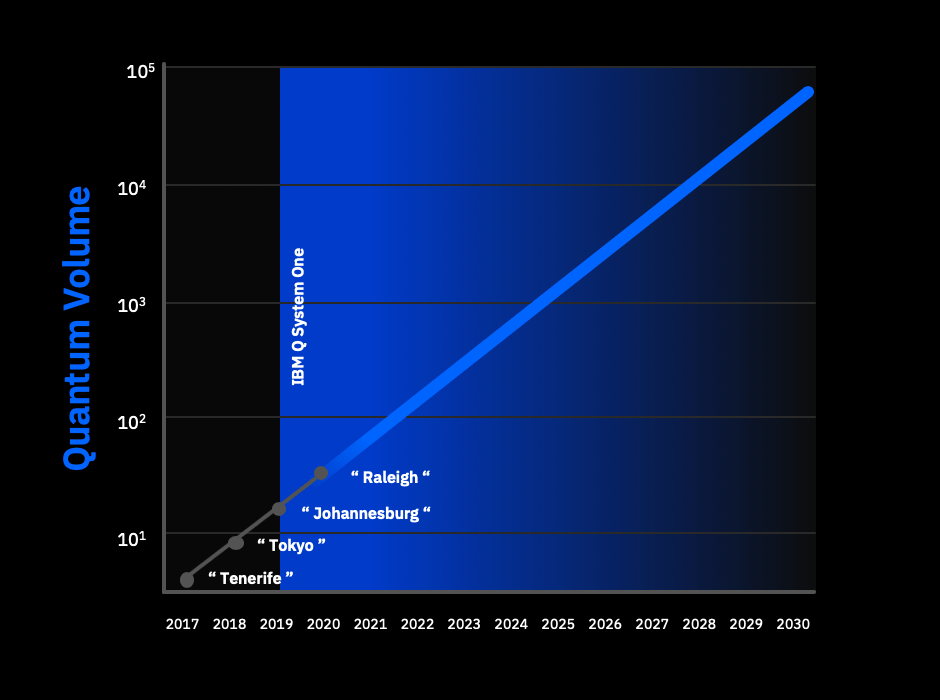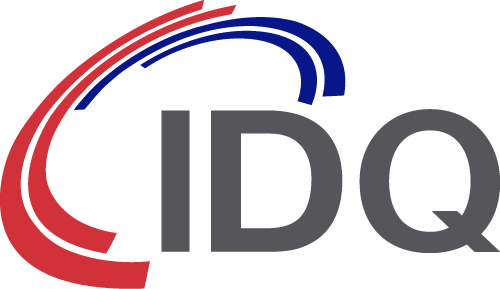Quantum Computing Industry Review: Q1 2020
We look at the latest news and developments in the quantum computing industry during the first quarter of 2020.
The start of 2020 has been somewhat of a strange time for us all with the emergence of Covid-19. While some may have worried that the rate of development will slow, in fact experts are turning to quantum and AI technologies to help fight this pandemic, and indeed future health crises.
Reaction from the science and technology communities has been strong. IBM is sharing supercomputing resources and AI tools, Google is using Kaggle (its machine learning and data science community) to answer questions posed by institutions such as the WHO, and D-Wave has opened its quantum computing resources to coronavirus research for free.
These are only a few of the responses we’ve seen throughout the world.
Alongside this, the first three months of the year has seen continued developments throughout the quantum computing industry. Here are our highlights…
Google CEO says quantum computing could end encryption within five years
In an interview given at this year’s World Economic Forum meeting in Davos, Sundar Pichai, CEO of Alphabet and its subsidiary Google, discussed how the combination of AI and quantum computing will help solve the world’s problems.
He spoke of how quantum computing will help improve health, reduce agricultural carbon emissions and improve battery design (something that IBM are also looking to do, as mentioned later in this article).
In a five to ten year timeframe quantum computing will break encryption as we know it today.
Sundar Pichai, CEO Alphabet & Google
Pichai commented that “When I look at the future and say – ‘how do we drive improvements?’ – quantum will be one of the tools in our arsenal,” before admitting that there are challenges as well as threats.
One example he gave was that quantum computing will be able to break today’s encryption techniques within the next 5-10 years, meaning we will need quantum encryption in order to keep data secure.
The Google boss’ comments came at an appropriate time, with the 2020 edition of the WEF’s Global Risk Report discussing how emerging technologies, such as quantum computing, have the power to transform human lives; but also warning of the risks they pose by making society more vulnerable to cyberattacks.
Quantum awareness continues to rise in 2020
Broader and deeper quantum technologies commercialisation has been identified as a major trend for this year. After earning number one spot in CB Insights’ 2020 Tech Trends report, quantum tech is described as ‘coming of age’, where “advances in quantum computers and quantum cryptography will begin to stack up as more companies take notice of quantum tech’s potential – with both excitement and a bit of apprehension”.
Meanwhile, an article by Deloitte Insights has highlighted the impact of quantum technology on national security. Written to educate nontechnical personnel, Deloitte note that government leaders must take notice of the impact – both positive and negative – these developments will have.
Showcasing the most recent developments in infosec, European Cyber Security Perspectives 2020 dedicates four articles looking at different areas of quantum research, including one by IDQ’s Jean-Sébastien Pegon and Bruno Huttner discussing quantum communication network applications.
IBM continues to drive quantum development, investment and commercialisation
In 2019, IBM discussed that to achieve quantum advantage within the next decade, it must (at least) double the quantum volume of its systems every year. At the start of 2020, the company confirmed that it remains on track by releasing Raleigh – its latest 28-qubit device.
Raleigh has reached a quantum volume of 32, doubling last year’s efforts of 16 by the Johannesburg system. This achievement means that IBM has succeeded in doubling quantum volume every year since 2017.

Source: IBM Research
In February, it was announced that the company had invested in quantum computing software company Cambridge Quantum Computing. While the size of the investment has not been disclosed, it was perhaps not too surprising as it comes after years of collaboration between the two companies.
IBM is also exploring the practical applications of quantum computing, partnering with Delta Air Lines to explore potential capabilities of the technology in the airline industry. On the same day, the company also announced a partnership with automotive corporation Daimler to use a quantum computer to develop next-gen batteries.
These organisations are two of more than 100 that are now using the IBM Q quantum computing service.
Quantum included in US Industries of the Future Bill, while funding is also increased
The US Senate Committee on Commerce, Science, and Transportation has introduced the Industries of the Future Act 2020. The legislation looks to “advance U.S. global leadership in artificial intelligence, advanced manufacturing, quantum information science, synthetic biology, and next generation wireless networks and infrastructure.”
Sen. Roger Wicker stated “Our investments in research, development, and innovation have made the United States a global leader in science and technology,” and that “This legislation would support and promote the advancement of next generation technologies that will drive Industries of the Future.”
This legislation would support and promote the advancement of next generation technologies that will drive Industries of the Future.
Sen. Roger Wicker
Soon after, the White House announced plans to increase federal funding for the development of quantum computing and AI.
According to The New York Times “The new budget proposal would increase funding for artificial intelligence research at the Defense Advanced Research Projects Agency…to $249 million from $50 million, and at the National Science Foundation to $850 million from about $500 million. The administration also vowed to double funding for A.I. and quantum computing research outside the Defense Department by 2022.”
The administration also wants to spend $25m on a national quantum internet.
India joins the quantum race
India’s latest budget has seen quantum tech funding being given an 80 billion rupees (US$1.12 billion) boost over the next five years, as the country looks to drive R&D in computing, communications and cryptography.
This development sees the country join the US, Europe and, more recently, Russia, who have all pledged similar amounts.
Secretary of the department of science and technology in Delhi, Ashutosh Sharma, comments that India’s quantum research is “solid on the theoretical side, but we need to build infrastructure and experimental facilities, we need to build our capacity.”
France plans a national strategy for quantum technologies
The French government, led by parliament member Paula Forteza, has presented a plan to structure a national strategy for quantum technologies.
Not wanting to be left behind by fellow nations contributing large budgets to R&D, the plan proposes a €1.4bn investment over five years from sources including the public and private sector, as well as EU support.
According to Quantum Computing Report, key elements of the plan include:
- 37 specific proposals relating to fields including computing, communications and cryptography
- The formation of 20 exploratory projects with annual budgets of up to €10m per year
- The creation of three centres of excellence
- Launching 50 quantum startups by 2024
- Establishing a late stage investment fund of €300-500m
Honeywell set to release the most powerful quantum computer yet
Honeywell has arguably been causing a stir in the quantum computing market. More commonly known to make control systems for homes, businesses and aerospace, the company has turned its attention to quantum technologies.
Its commitment is clear to see after it announced that it will release the most powerful quantum computer yet, with a quantum volume of at least 64, by the middle of 2020. In the same announcement, the company announced its partnership with J.P. Morgan Chase to develop quantum computing in financial services.
Interestingly, alongside IBM, Honeywell too has invested in Cambridge Quantum Computing. The two companies are also the only ones to measure using quantum volume.
IDQ in the news
It’s been a busy start to the year for us here at IDQ. We began with the news that Secure Channels’ new encryption fix for IoT devices leverages our Quantis QRNG Chip technology.
We went on to welcome Axel Foery to the team as our new Executive Vice President for the Quantum-Safe Security division, before announcing our partnership with Bright Apps to push quantum technologies into the US market.
We were also pleased to announce our partnership with Fortinet, which sees us join forces to commercialise a quantum-safe VPN solution. Meanwhile, we’re also hard at work with Mt Pelerin on the Quantum Vault, which saw us deploy a QKD network in Geneva as a test environment for ultra-secure digital asset custody.
Finally, we were very excited to launch our new ultra-small QRNG Chip, which has been developed to secure mobile, IoT and edge applications.
Also in the news
- Researchers at the University of Science and Technology of China have brought the quantum internet one step closer through record-breaking quantum memory
- SAP has outlined what it sees as quantum tech’s immediate opportunities and threats, highlighting the use of QKD
- Tel Aviv-based startup Quantum Machines has raised $17.5 million in venture capital for its hardware and software system
- D-Wave has launched Leap 2, the next version of its quantum cloud service
- Scientists at Stockholm University have ‘filmed’ a quantum measurement
Like to keep up-to-date with the latest quantum computing and cybersecurity news? Sign up to our monthly newsletter.



